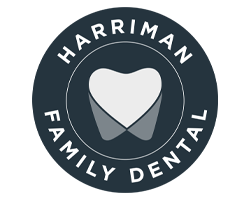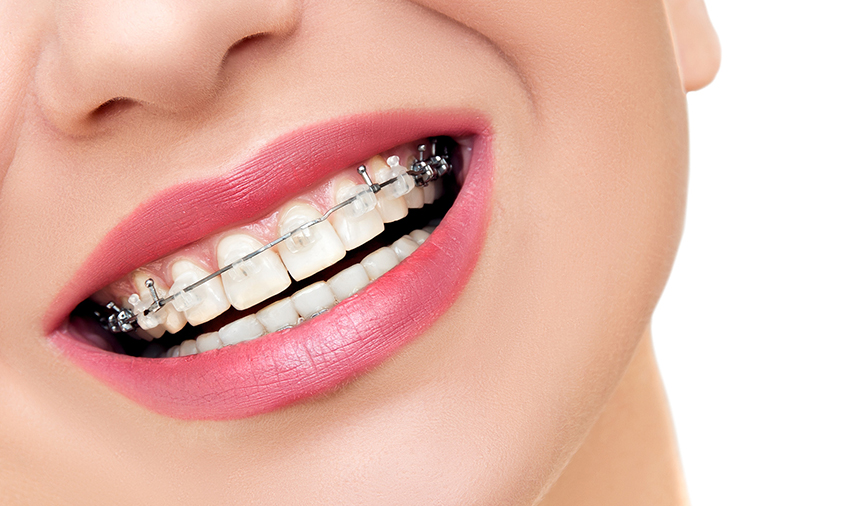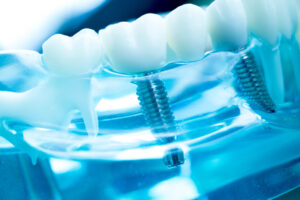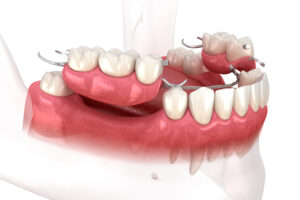It’s a dramatic claim: braces are bad for your teeth. So bad, in fact, that they can lead to the destruction of your gums and the loss of teeth. The article is long, too, with many sources, which makes it seem convincing.
There’s just one problem: there’s nothing in the article or its sources that actually supports the claim that braces will lead to tooth loss.
What the Article Claims
The article makes several claims about the impact of braces on your teeth and gums. In its most dramatic form, it claims that braces will make your gums “disintegrate”–that’s the word the author uses.
In less dramatic fashion, the article talks about 40 to 90 year old people who may experience the “long-term ramifications of orthodontic treatment.” The author herself talks about her gum graft procedure, which she ostensibly blames on orthodontic treatment.
The author also claims that metal in braces can lead to gum recession.
Ostensibly, the author provides sources for all these claims, but it isn’t as clear as they would have you believe.
Dishonest Use of Sources
One of the biggest problems in the article is the dishonest use of sources. By this we mean that they cite many sources that don’t actually say what they claim. For example, when saying that braces make your gums “disintegrate,” the author links to the study “Are the Effects of Fixed Orthodontic Treatment on Gingival Health Similar in Adolescents and Young Adults?” But this study doesn’t say anything about gums disintegrating. Instead, the conclusion is that adults can experience more gum inflammation and gum recession after orthodontic treatment than teens. But how common is this recession? Before treatment, adults had visible gum recession on 2.3% of teeth, and after treatment, about 5.4% of their teeth were affected. Receding gums on 5% of teeth is hardly gum “disintegration”!
Another dishonest use of sources is when she claims that 400,000 people a year develop gum recession and gum disease from braces each year, and cites a source. This source gives no evidence to make that claim. Based on the increase in gum recession cited in the article, we’d expect at most around 70,000 people would develop gum recession each year as a result of braces treatment (4 million people treated with braces each year, recession increased from 0.86% to 2.59% of people). And it’s unclear how many more would develop [link id=’50198′ text=’gum disease’], but since gum disease affects at least half of all American adults, we expect that this consequence is not necessarily significant.
Faulty Logic
Another problem with the article underlies the claims that metal in braces leads to gum recession. This is another example of dishonest use of sources, linked with poor logic.
The author cites an article showing that Invisalign clear aligners don’t cause as much gum disease as metal braces. But the article itself doesn’t talk about metal. It talks about oral hygiene. Because Invisalign is removable, it lets you brush and floss normally, unlike fixed braces that can interfere with oral hygiene.
To bolster her metal claims, the author then points to gum recession related to lip piercings. But what she doesn’t point out is that lip piercings can physically irritate your gums–it’s not just the presence of metal that is a factor here.
Braces Require Care
The truth is that braces can increase your risk for gum disease and gum recession. But these are primarily related to the challenges of cleaning your teeth with braces on. If it were tooth movement itself that was the problem, we would see similar effects for both Invisalign and metal braces.
Here are some tips for minimizing the impact of braces on the health of your gums so you can enjoy a beautiful smile for life.
- Opt for removable appliances when possible
- Take care to clean teeth properly during treatment
- Minimize your time in treatment
- Care for teeth properly after you have braces off
Removable appliances make oral hygiene easier, so they’re preferred in most cases. This includes the use of functional orthodontics to reshape the jaw.
While you’re being treated, closely follow your dentists and/or orthodontist’s instructions for cleaning your teeth.
Gum disease develops over time. So the less time you’re in braces, the less effect you’re likely to experience from gum disease. That’s why accelerated orthodontics like Six Month Smiles are good. And even Invisalign has cut most of its treatment times in half, making it a better option than ever.
It’s also important to remember to take care of your teeth after you get finished with orthodontic treatment. Proper oral hygiene is the most important thing you can do for your teeth.
If you are looking for a dentist in Harriman that can get your teeth straightened while maintaining their health, please call (845) 783-6466 today for an appointment at Harriman Family Dental, serving Orange County, NY.



